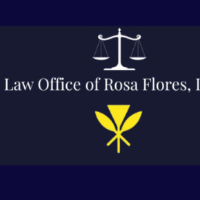 Kapolei Juvenile Law Lawyers, Hawaii
Kapolei Juvenile Law Lawyers, Hawaii
Not enough matches for Kapolei Juvenile Law lawyer.
Below are all Kapolei Criminal lawyers.
Sponsored Lawyers
1-2 of 2 matches
Divorce & Family Law, Criminal, Guardianships & Conservatorships, Paternity
Practicing across all islands in the State, primarily in the areas of Family Law-divorce, custody, paternity, child support, guardianship, adoption, child support, restraining orders--and Criminal Defense, and Appeals.
(more)Accident & Injury, Criminal
George Allen Burke is a practicing lawyer in the state of Hawaii handling personal injury matters.
(more)





